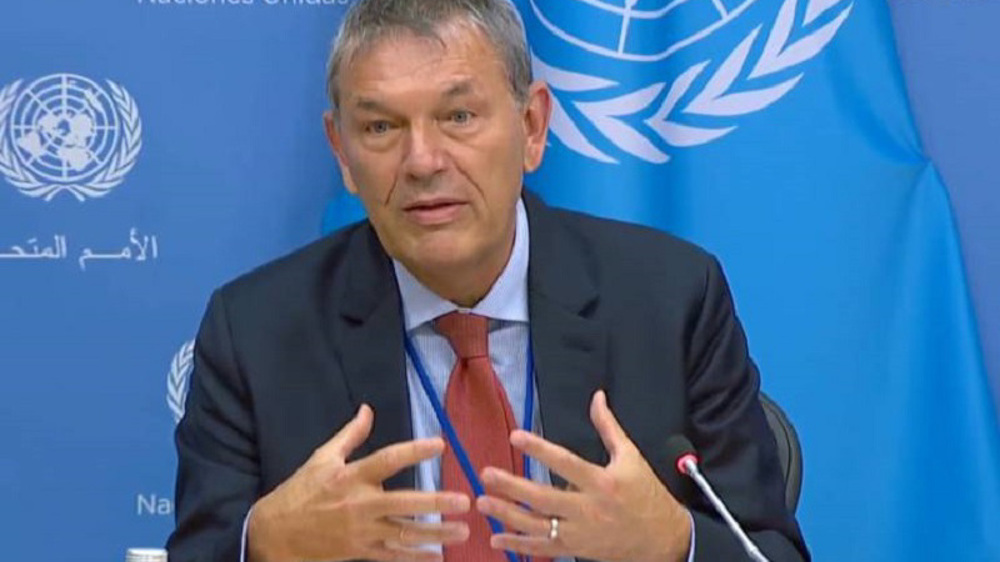No concessions on future Palestinian state: Jordan, Egypt
Egyptian President Abdel Fattah el-Sisi and King Abdullah II of Jordan say there could be no concessions on the establishment of an independent Palestinian state, reaffirming their support for a so-called two-state solution to the decades-long conflict between Israelis and Palestinians.
The two leaders held a meeting on Tuesday in the Egyptian capital, Cairo, where they “discussed ways to push the stagnant Middle East peace process, especially in light of US President Donald Trump’s administration coming to power,” Egypt’s presidential spokesman said in a statement.
The statement further said the so-called two-state solution that would lead to the establishment of “a Palestinian state... with East Jerusalem (al-Quds) as its capital is a nationalist principle that cannot be conceded.”
The two statesmen also vowed to defend the rights of the Palestinian nation, and stressed the need for the resolution of the Israeli-Palestinian conflict in order to restore peace and stability to the Middle East region.
Earlier this month, Trump backtracked on Washington’s firm support for a “two-state solution” to the Israeli-Palestinian conflict, saying he would support any solution favored by both sides.

“Looking at two-state or one-state, I like the one that both parties like. I’m very happy with the one both parties like. I can live with either one,” Trump said during a joint press conference with Israeli Prime Minister Benjamin Netanyahu.
The Cairo meeting came days after Israel’s Haaretz newspaper reported that Netanyahu had dismissed a regional peace initiative at a secret summit meeting with former US secretary of State John Kerry in the Jordanian resort town of Aqaba. The Jordanian monarch and Egypt’s Sisi were in attendance as well.
The report added that Kerry had outlined a proposal that included recognition of Israel and resumption of peace negotiations with the Palestinians. Netanyahu did not agree to the plan, saying members of his coalition administration would not approve it.
During the secret meeting, Abdullah and Sisi tried to talk the Israeli prime minister into accepting the proposal, but Netanyahu presented a plan of his own and demanded that a regional summit be arranged to include senior figures from Saudi Arabia, the United Arab Emirates and other Arab countries.

The last round of Israeli-Palestinian talks collapsed in 2014. Among the major sticking points in those negotiations was Israel’s continued settlement expansion on Palestinian territories.
Since the inauguration in January of Trump, who is a steadfast supporter of Israel, the regime in Tel Aviv has stepped up its construction of settler units on occupied Palestinian land in a blatant violation of international law.
Less than a month before Trump took office, the United Nations Security Council had adopted Resolution 2334 in December, calling on Israel to “immediately and completely cease all settlement activities in the occupied Palestinian territories, including East Jerusalem” al-Quds.
About 600,000 Israelis live in over 230 illegal settlements built since the 1967 Israeli occupation of the Palestinian territories of the West Bank and East Jerusalem al-Quds.
Palestinians wants the West Bank as part of a future independent Palestinian state, with East Jerusalem al-Quds as its capital.
UNRWA unraveled amid Israel's allegations, reduced intl. support
Palestinian journalist, a Sobh Media Festival awardee, killed in Gaza hours before truce
Jan. 15: ‘Axis of Resistance’ operations against Israeli occupation
VIDEO | Fears, hope in Gaza amid intensified ceasefire efforts
VIDEO | Press TV's news headlines
Hamas: Ceasefire agreement result of steadfastness, resistance in Gaza over 15 months
Hamas thanks Iran, Resistance Front following achievement of ceasefire in Gaza
'Capitulation': Israeli officials and media concede Gaza defeat as truce unfolds















 This makes it easy to access the Press TV website
This makes it easy to access the Press TV website